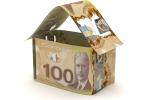Snowbird FAQs is a forum where we provide answers to some of the most common and interesting questions we receive from Snowbird Advisor members that we feel will be of interest to other members.
Snowbird FAQs
Disclaimer: The material provided on the SnowbirdAdvisor.ca website is for informational purposes only and does NOT constitute legal, tax, accounting, financial, real estate, medical or other advice, and should not be relied on as such. If you require such advice, you should retain a qualified professional to advise you.
















